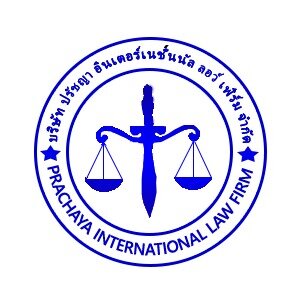Best Father's Rights Lawyers in Huai Khwang
Share your needs with us, get contacted by law firms.
Free. Takes 2 min.
Free Guide to Hiring a Family Lawyer
List of the best lawyers in Huai Khwang, Thailand
About Father's Rights Law in Huai Khwang, Thailand
Father's Rights in Huai Khwang, a central district of Bangkok, are governed by Thai family law, which applies uniformly across Thailand. The law aims to protect the best interests of children while defining the legal relationship between fathers, their children, and the child's mother. While Thai law traditionally emphasizes maternal custody, fathers still have important rights and responsibilities, especially concerning child custody, visitation, acknowledgment of paternity, and child support. For unmarried fathers, extra steps may be required to establish legal parentage and secure rights.
Why You May Need a Lawyer
There are several reasons individuals may need legal assistance regarding Father's Rights in Huai Khwang. Some common situations include:
- Establishing paternity for fathers who are not married to the child's mother
- Seeking custody (sole or joint) or visitation rights after a divorce or separation
- Negotiating or contesting child support payments
- Disputes over parental authority, such as decision-making for the child's education, health care, or travel
- International custody issues, including when one parent wishes to relocate with the child
- Enforcing or modifying an existing court order related to Father's Rights
A qualified lawyer can provide legal guidance, represent you in court, mediate disputes, and help protect your interests and those of your child.
Local Laws Overview
In Huai Khwang, as throughout Thailand, the Civil and Commercial Code regulates matters concerning Father's Rights. Key aspects include:
- Parental Power: Under Thai law, the mother normally holds parental power over a child born outside of marriage unless the father successfully petitions for it.
- Paternity Recognition: A father must be listed on the child’s birth certificate or obtain a court order to be legally recognized if not married to the mother at the time of the child’s birth.
- Court Involvement: Custody and visitation disputes are often resolved in the Central Juvenile and Family Court, with decisions based on the child's best interests.
- Custody and Visitation: Both parents can apply for custody, and courts may grant joint or sole custody.
- Child Support: Both parents have an obligation to financially support their children until the child reaches adulthood.
- Modification of Orders: Changes in circumstances can justify modifying custody, visitation, or support orders.
Understanding these laws is crucial, as procedures and outcomes can vary based on the facts of each case and the documentation provided.
Frequently Asked Questions
What are the basic Father's Rights in Thailand?
Fathers have the right to custody, visitation, and participation in their children's upbringing. These rights depend on the legal recognition of paternity.
Can an unmarried father get custody or visitation rights?
Yes, but the father must first be legally recognized, either through acknowledgment at the time of birth or by court order.
How is paternity established if I am not married to the mother?
Paternity can be established by having your name put on the birth certificate with the consent of the mother or by obtaining a court order.
What factors do courts consider in custody cases?
Courts evaluate the best interests of the child, considering parental stability, financial capacity, emotional bonds, and living environment.
Am I required to pay child support if I do not have custody?
Yes, both parents are obligated to support their child financially regardless of custody arrangements.
Can custody orders be changed later?
Yes, custody and support orders can be modified if there are significant changes in circumstances affecting the child's welfare.
What can I do if the mother denies me access to my child?
You can seek enforcement or modification of your visitation rights through the family court system.
Are foreign fathers entitled to the same rights as Thai citizens?
Generally, yes. Fathers of any nationality can pursue rights under Thai law, but cross-border issues may require additional steps.
Which court handles Father's Rights matters in Huai Khwang?
Most cases are heard by the Central Juvenile and Family Court, which serves the Bangkok area including Huai Khwang.
Do I need a lawyer for a Father's Rights case?
While not legally required, having a lawyer is strongly recommended to ensure your case is handled effectively and your rights are protected.
Additional Resources
If you need more guidance or support regarding Father's Rights in Huai Khwang, you can consult:
- Central Juvenile and Family Court - Handles custody, visitation, and child support cases.
- Legal Aid Centers - Offer free or low-cost legal advice for eligible individuals.
- Ministry of Social Development and Human Security - Provides information and services related to family welfare.
- Thai Lawyers Council - Can help refer you to qualified family law practitioners.
- Nonprofit Organizations - Some NGOs focus on child and family support, offering mediation and counseling services.
Next Steps
If you require legal assistance regarding Father's Rights in Huai Khwang, you may wish to:
- Gather all relevant documents, such as birth certificates, custody agreements, or messages related to arrangements with the mother.
- List your main concerns and desired outcomes, such as custody, visitation, or support modifications.
- Contact a qualified family law attorney for a consultation to discuss your options.
- If cost is an issue, reach out to legal aid organizations or government offices for assistance.
- Be prepared for the possibility of mediation or court proceedings, depending on the complexity of your case.
- Follow your lawyer's guidance and meet all court deadlines to protect your rights and interests.
Taking prompt and informed action is essential to preserve your relationship with your child and uphold your legal rights as a father in Huai Khwang.
Lawzana helps you find the best lawyers and law firms in Huai Khwang through a curated and pre-screened list of qualified legal professionals. Our platform offers rankings and detailed profiles of attorneys and law firms, allowing you to compare based on practice areas, including Father's Rights, experience, and client feedback.
Each profile includes a description of the firm's areas of practice, client reviews, team members and partners, year of establishment, spoken languages, office locations, contact information, social media presence, and any published articles or resources. Most firms on our platform speak English and are experienced in both local and international legal matters.
Get a quote from top-rated law firms in Huai Khwang, Thailand — quickly, securely, and without unnecessary hassle.
Disclaimer:
The information provided on this page is for general informational purposes only and does not constitute legal advice. While we strive to ensure the accuracy and relevance of the content, legal information may change over time, and interpretations of the law can vary. You should always consult with a qualified legal professional for advice specific to your situation.
We disclaim all liability for actions taken or not taken based on the content of this page. If you believe any information is incorrect or outdated, please contact us, and we will review and update it where appropriate.









